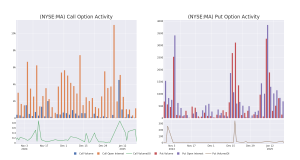The demand for the chips required for training and deploying artificial intelligence (AI) models and applications in data centers increased at a remarkable pace in the past couple of years. Nvidia (NASDAQ: NVDA) has been the biggest beneficiary of this fast-growing market as it left its fellow chipmakers in the dust by capturing the lion’s share of the AI semiconductor space.
No other chipmaker comes close to Nvidia in terms of revenue generated from selling AI chips. For instance, in the third quarter of fiscal 2025 alone (which ended on Oct. 27), Nvidia sold $30.8 billion worth of data center chips, a remarkable increase of 112% from the same period last year. Its nearest rival in data center graphics processing units (GPUs) — Advanced Micro Devices — is forecasting $5 billion in data center GPU revenue this year.
However, GPUs aren’t the only type of chip that cloud service providers are using for AI model training and inferencing. This is evident from the rapid growth that Broadcom (NASDAQ: AVGO) reported in the demand for its application-specific integrated circuits (ASICs) in the latest fiscal year, thanks to AI-related demand.
Let’s take a closer look at the growth of Broadcom’s AI chip business and see if this could be a reason for Nvidia investors to worry.
Broadcom finished fiscal 2024 (which ended on Nov. 3) with $12.2 billion in revenue from sales of its custom AI accelerators — which it brands as XPUs — and networking chips needed in AI data centers. Of course, that’s nowhere near the annual revenue that Nvidia is on track to generate from its data center business this year.
After all, Nvidia’s data center revenue in the first nine months of the current fiscal year stands at a massive $79.6 billion. However, investors should note that the terrific pace of growth in this segment has been decelerating of late. That’s not surprising, considering that Nvidia already attained a massive revenue base. It is currently in the middle of a transition to a new generation of AI data center chips based on its Blackwell architecture.
At the same time, the big jump in Broadcom’s AI revenue shows that the demand for alternative chips to tackle AI workloads is on the rise. Again, that’s not surprising. Major cloud companies have been working on in-house chips to cut costs and speed up AI development, given how expensive Nvidia’s AI chips are and the long wait times they require during production.



